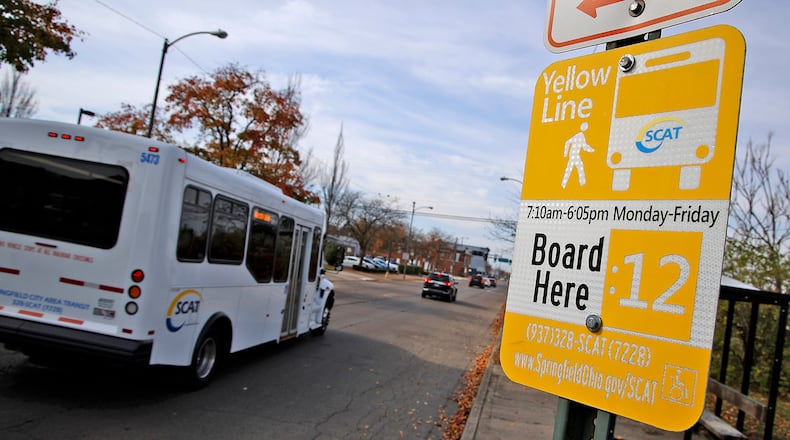City officials say they received three bids from their recent Request for Proposals (RFP) that seeks partners to develop and provide micro-transit services, potentially breaking away from the big-bus, fixed-route offering that has served the city for decades.
The RFP says the city is seeking a firm “to comprehensively reimagine, plan, execute, and operate our public transit system.” It says the firm eventually selected “will assume the existing operation” and evaluate micro-transit options. It also says that “The city prefers to reduce or eliminate fixed routes.”
Springfield City Manager Bryan Heck told commissioners that the grant application is submitted every year and that last year the city received only $70,000 in response to the grant application submitted seeking $680,800.
“Transit funding from the state ebbs and flows, so we’ve requested the same $680,800 hoping that we get closer to that amount. We continue to look into the micro-transit opportunity and to moving our system into that model,” Heck said. “I’m happy to report we received three proposals to our RFP this time. ... Staff is currently reviewing those and we hope to bring you a contract for a new micro-transit system in the near future.”
Credit: Bill Lackey
Credit: Bill Lackey
City officials had hoped to launch a micro-transit program in 2024, but the first time they put out the RFP, they did not receive any proposals from companies or agencies pursuing the contract. Micro-transit has been described as “Uber meets public transit,” with people scheduling specific rides they’re looking for, and getting rides in minivans rather than buses.
Jason Via, the city’s deputy director of public safety and operations, has been leading the effort to change the current Springfield City Area Transit (SCAT) system, which offers seven fixed bus routes that serve city residents 12 hours daily, 6:40 am to 6:40 pm, Monday through Friday, as well as an ADA para-transit system and a call-ahead scheduled ride service.
“What we’re looking to accomplish is a technologically enhanced service to meet the needs of employers and citizens who can’t always get where they want to be in the right amount of time,” Via said. “We’re looking to leverage technology and efficiency to have a demand response system that better serves the community.”
In its RFP, the city called its public transit system “a critical component of our commitment to enhancing the quality of life for our residents, improving accessibility, and fostering sustainable urban development.”
In addition to seeking micro-transit proposals, the RFP says a winning bidder would “continue to operate the complementary ADA para-transit service” and also asks bidders to consider expanding service hours to 11 p.m. The RFP says the fare schedule for the new service is yet to be established.
Credit: Bill Lackey
Credit: Bill Lackey
In the RFP, the city acknowledges some challenges to operating transit service in Springfield, including “rapid population growth (where) many new residents do not speak English,” decreasing ridership on traditional fixed routes, and a shortage of drivers who have commercial drivers licenses.
Via said the bids will be evaluated to determine what is the economic and efficient option that also meets community needs. The RFP calls for a five-year contract to be awarded (July 1, 2025 to June 30, 2030), with the city having the option to renew the deal if it wants.
When no bids were submitted in response to the first RFP, Via said city officials interviewed vendors who had attended a meeting about the project but did not bid. They also reviewed the bidding and contract structure other cities had used in order to modify the city’s process for a more successful response.
Via said they were prepared to release the RFP in September, but delayed doing so when false claims about Haitian immigrants in the city, amplified by Donald Trump, caused chaos in the city.
About the Author


